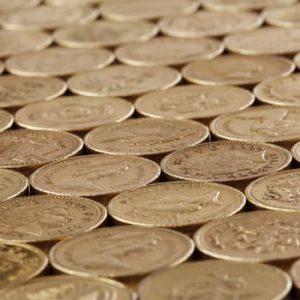R&D tax credit relief for your restaurant
Hospitality is one of the most competitive industries to grow in. With constantly rising costs and already tight margins, any form of small business tax relief can be a real benefit to restaurants. While it’s common knowledge that technology and science companies can apply for R&D tax credit relief, there are a whole host of other businesses that can reap the benefits of R&D tax relief too, including restaurants.
Many of the issues in the food and beverage industry come from increasing costs. This includes costs such as fuel, raw materials, regulatory changes, and the need to keep prices competitive to retain market share.
More often than not, these rising costs actually stem from R&D strategies to develop new products related to cost reduction, food safety, dietary guidelines and sustainable resources.
This means that many restaurants are actually eligible for generous R&D tax relief benefits that could offer a real lifeline for certain businesses. Find out whether your restaurant is eligible for R&D tax credit relief by contacting us.
Small business tax relief: Are you missing out?
Data from HMRC indicates that just 41% of eligible companies apply for R&D tax credits. This means there is plenty of scope for restaurants to:
- Seek to advance their knowledge
- Improve a service or product
- Solve uncertainties in the process
If you can demonstrate to HMRC that you can accomplish the above, you may be eligible for tax relief on certain parts of the project in question.
The amount of tax relief you can claim depends on whether you are an SME or a large company. Either way, you can receive a cash refund from HMRC if you’re not profitable or a reduction in corporation tax liability if you are.
An R&D tax credits example for a restaurant could be your head chef experimenting with a new menu, or your pastry chef testing out a new cake recipe to get the right texture. These are just two ways you can demonstrate to HMRC your dedication to R&D and develop streamlined approaches.
Use our complimentary service to check if you are eligible to claim.
R&D tax credits in Food Manufacturing
A thorough analysis of your restaurant may lead you to discover that there are a myriad of ways you can achieve innovation and stake a claim for R&D tax relief.
In the food and beverage industry, this can include:
Food
- Improving the texture, taste and nutrition of food product formulations.
- Testing sustainable or new ingredients.
- Creating new samples within a test kitchen environment.
Packaging
- The creation of new packaging to improve durability and shelf life.
- Using environmentally friendly materials in packaging, or alternative materials to improve packing.
Processes
- Creating new methods that will reduce costs and improve product consistency.
- Improvements to equipment and machinery to ensure food is handled safely.
Sustainability Efforts
- New methods for reducing scrap, contamination, spoilage and waste.
- Efforts to use utilities, water, fuel and energy more efficiently with the introduction and integration of new technologies.
- Testing out new processes to convert waste to energy.
You will quickly find through business analysis that innovation really is everywhere. Fortunately, so is a helping hand from the government with R&D tax credits. All you need to do is claim the tax credits that your business is owed.
How much R&D tax relief can your restaurant claim?
SME’s who make a successful claim can deduct an extra 86% of their qualifying costs from their yearly profit, as well as the normal 100% deduction. This makes a total of 186% deduction.
The impact of missing out on small business tax relief
Missing out on small business tax relief that you are eligible for can be detrimental to your growth and success. Because your competitors are also likely to be eligible, if they are claiming and you aren’t, your business is at an automatic disadvantage,
The tax deductions can be put towards developing your business and ironing out issues, which can help you grow your customer base. The extra cash can also be a lifeline during times of uncertainty, helping your business be more secure during quieter periods of the year.
Getting started with R&D tax relief
You can claim R&D tax relief yourself. However, the whole process can be tricky, which is why many businesses don’t pursue it. This has been made even more difficult following changes in August 2023 that require additional information to be submitted. Many businesses actually run the risk of over-claiming or under-claiming, with the former potentially leading to an investigation. It’s easier to get in touch with an R&D expert to ensure you claim the right amount for your restaurant.
R&D tax credit accountants in Manchester & London
R&D tax credits are one of our specialist tax areas. Therefore, it is in your best interest to hire an accountant with R&D tax expertise. They will be able to help you not only identify the claim but maximise it so you receive the best benefit possible. If you are unsure whether you are eligible for R&D tax credits, make sure you get in touch with us or drop by our offices in Manchester and London.





